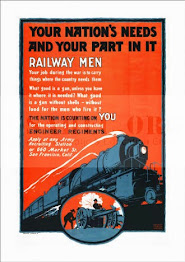Cooper climbed 35-foot wooden power poles in 30-degree-below-zero temperatures to make emergency repairs along 52 miles of territory in the Korean War.
"The lines froze and broke in the cold temperatures," Cooper recalled. "We climbed high on the poles in the bitter cold air to set up an emergency phone system."
The soldiers of the 712th Transportation Railway Operating Battalion gained a reputation for their courageous action to keep supplies moving to U.S. infantrymen.
The Korean War was raging in 1952 when Cooper was drafted in the Army in his hometown of East Alton.
He graduated from East Alton-Wood River High School in the class of 1950 and worked a year at Laclede Steel Co. until he went into the Army.
Cooper was sent to special training to learn to climb wooden power poles as a lineman to keep lines of communication open to the fighting front.
He learned to dig the steel spikes on the side of his boots into the wood pole and climb 35 feet in the air. Dozens of soldiers underwent intense training to learn the skill of standing near the top of a pole in the dangerous job of keeping lines of communication open for U.S. forces fighting to defeat communist troops in Korea. Cooper was assigned to the elite 712th Transportation Railway Operation Battalion, which first went to battle in the early 1940s in World War II. In the Korean War, the 712th was activated on Sept. 3, 1950 at Ft. Eustis, Va., with officers and enlisted men who had experience in railroad operation. The 712th operated the Korean National Railroad in the early months of the war from Taejon north to the frontlines of the battlefield. Cooper climbed poles to set up emergency phone communication systems on the site of four major wrecks of railroad trains.
In one Collision, rocks slid down a hillside in the night and slammed into a train, killing the engineer.
Armed with a pistol in his shoulder holster, Cooper dug his steel spikes in the wooden pole and climbed to install phones to open the line of communication at the scene of the train wreck cause by the rock slide.
Cooper's 712th Railway Transportation Battalion was awarded the U.S. Meritorious Unit Commendation medal for courageous action in transporting troops to the battlefields.
In one dangerous mission, men of the 712th transported U.S. infantrymen, tanks and artillery guns of an entire army division through the night across Korea to another fighting front.
Cooper and his crew did maintenance work on 52 miles of power lines through deep valleys and up mountains in the hot, steamy summer and 30 degree below zero winters. After 17 months in Korea, Cooper came home in 1953 with Army service medals, including the Korean United Nations ribbon with three bronze battle stars. He returned to work at Laclede Steel Co. where he operated a press in the wire mill, retiring after 42 years. Cooper and his wife, Juanita, married in 2003.
He was married 51 years to Shirley Cooper, who died in 2001. They have two daughters, Debbie and Starla, four grandchildren and two great grandchildren.
Cooper is a life member of Alton VFW Post 1308.




